Neuroplasticity-Guided Interventions in Neurorehabilitation
Non-invasive brain stimulation (NIBS) is a novel therapeutic method that has shown increasing evidence of positive clinical results for a variety of conditions. Despite a common awareness that NIBS techniques exist, currently there is a lack of knowledge by clinical professionals on the potential benefits that NIBS can provide to neurorehabilitation. This is a comprehensive course offered by experts in the field on the non-invasive brain stimulation (NIBS) techniques used in neurorehabilitation. Our activity will provide the knowledge to rehab professionals that non-invasive brain stimulation (NIBS) techniques have the potential to influence a wide variety of deficits (e.g., motor, cognitive, etc.) in a broad range of disorders, potentially improving symptoms in various disorders. This course will help guide rehabilitation professionals toward understanding the evidence behind cutting edge NIBS techniques, how they apply to and can modulate the pathophysiology behind various disorders seen in neurorehabilitation, and how they can be tailored to their patient populations.
Target Audience
This activity is intended for rehabilitation-related health professionals such as physicians, nurses, physical, speech and occupational therapists and researchers in the field of Physical Medicine & Rehabilitation, Neurology, Psychiatry, Psychology, Internal Medicine and Neurosurgery.
Learning Objectives
Upon completion of this activity, participants will be able to:
- Discuss the principles of interventions that induce neuroplasticity including non-invasive brain stimulation (NIBS).
- Rank the pros and cons of using each of transcranial direct current stimulation (tDCS) and transcranial magnetic stimulation (TMS) in neurorehabilitation.
- Identify, and compare different neuroplasticity-guided interventions including tDCS and TMS applications.
- Interpret the rationale for the use of neuroplasticity-guided interventions applications in various disorders, including traumatic brain injury, spinal cord injury, pain (including migraine), stroke, depression and epilepsy.
- Debate future directions of neuroplasticity-guided intervention in neurorehabilitation.
Additional Information
Spaulding-Labuschagne Neuromodulation Center & Partners HealthCare System


Felipe Fregni, MD, PhD, MPH, MEd - Course Director
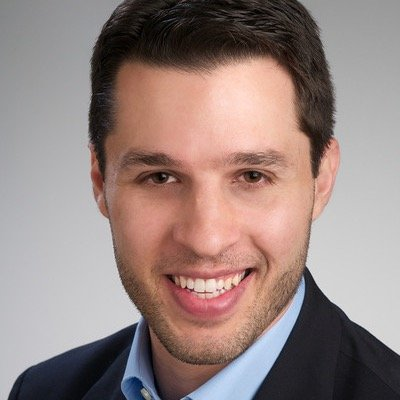
Associate Professor, Physical Medicine & Rehabilitation, Harvard Medical School;
Associate Professor, Epidemiology, Harvard T.H. Chan School of Public Health;
Research Center Director, Spaulding Neuromodulation Center, Department of Physical Medicine & Rehabilitation,
Spaulding Rehabilitation Hospital;
Massachusetts General Hospital
Felipe Fregni earned his Medical Degree and Doctorate Degree (PhD in Medical Sciences) from University of Sao Paulo, also completing his residency in Neurology there. After he moved to Boston, where he has lived for the past 15 years, he earned three master’s degrees from Harvard University (Medical Sciences from Harvard Medical School, Public Health from Harvard School of Public Health and Education from Harvard Graduate School of Education). He is now an Associate Professor at Harvard Medical School, and leads one of the largest neuroscience laboratories at Harvard, the Labuschagne-Spaulding Neuromodulation Laboratory.
Paulo Eduardo Portes Teixeira, PT, MSc
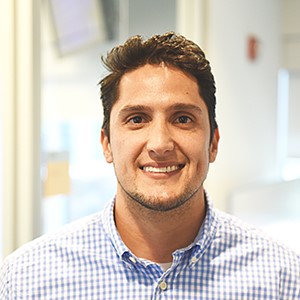
Research and Study Assistant / PhD Candidate
Spaulding Neuromodulation Center, Spaulding Rehabilitation Hospital;
Massachusetts General Hospital / MGH Institute of Health Professions
Paulo Teixeira is a physical therapist specialized in orthopedic and musculoskeletal physical therapy. Currently, he is pursuing his PhD at MGH Institute of Health Professions, and works as a senior research fellow at the Spaulding Neuromodulation Center, a research laboratory under the Department of Physical Medicine and Rehabilitation from Harvard Medical School.
Mr. Teixeira has been a fellow in clinical research at University of Delaware and a visiting scholar at University of Pittsburgh. Paulo has completed his Master’s in science at University of Pittsburgh, and was a doctoral candidate also at the same university, where he worked as an assistant for research and studies in the Department of Physical Therapy. He also has a Certificate in Principles and Practice of Clinical Research from Harvard University (Harvard Medical School) and in Biopsychosocial Management of Complex Patients with Pain (Keele University - England).
Mirret M. El-Hagrassy, MD
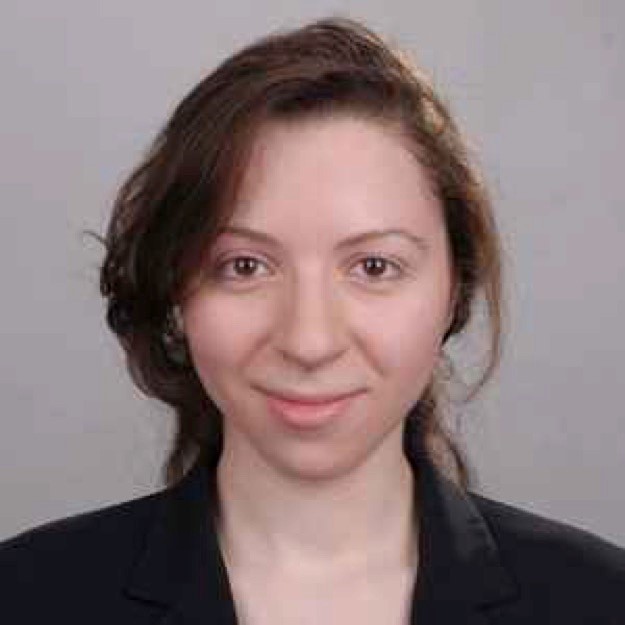
Post Doctoral Research Fellow
Neuromodulation Center, Spaulding Rehabilitation Hospital;
Harvard Medical School
Dr. El-Hagrassy is a licensed neurologist, board-certified in neurology and epilepsy, having trained at SUNY Upstate Medical University and Cleveland Clinic (EEG/epilepsy track). As a senior post doctoral research fellow at the Spaulding Neuromodulation Center, Harvard Medical School, she has a unique clinical/research background in multiple disciplines, including neurology, epilepsy, clinical neurophysiology, clinical research, neuromodulation and neurorehabilitation. Her long-term research interests are primarily in neuromodulation of epilepsy and its comorbidities (including cognitive impairment and neuropsychiatric disorders), as well as in EEG analysis as a tool for research and neurorehabilitation.
Dante Duarte, MD
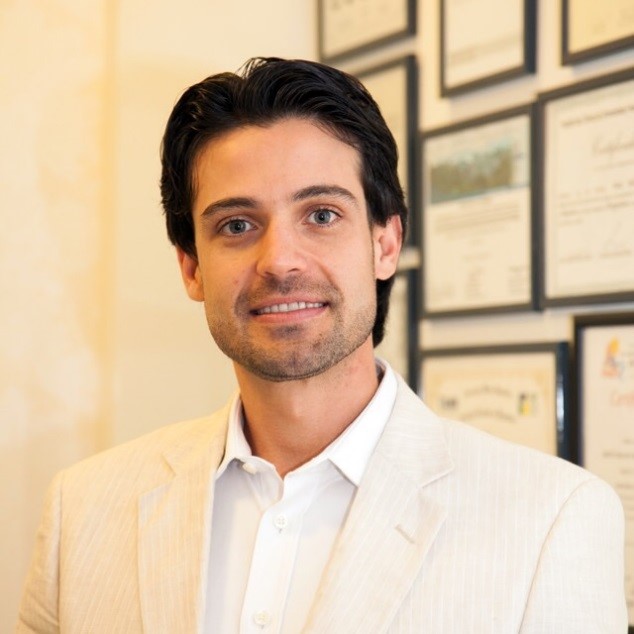
Post Doctoral Research Fellow
Neuromodulation Center, Spaulding Rehabilitation Hospital;
Harvard Medical School
Dr. Duarte is currently a senior post-doctoral research fellow at the Spaulding Neuromodulation Center, Harvard Medical School. He has residency training in psychiatry and geriatric psychiatry at the Federal University of Minas Gerais, Brazil. Dr. Duarte’s Master and PhD were on finding neuromarkers and circuit-based targets associated with suicide behavior in bipolar patients. In the past few years he has been Assistant Professor and Residency Preceptor at the Psychiatry Department at the Federal University of Minas Gerais and worked as a psychiatrist at Federal University of Minas Gerais. Furthermore, he has experience as senior researcher and collaborator in several projects within the mood disorder and psychotic division of the Federal University of Minas Gerais. Finally, Dr. Duarte is teaching assistant at the Principles and Practice of Clinical Research Course, Harvard T.H. Chan School of Public Health.
Camila Bonin Pinto, PhD
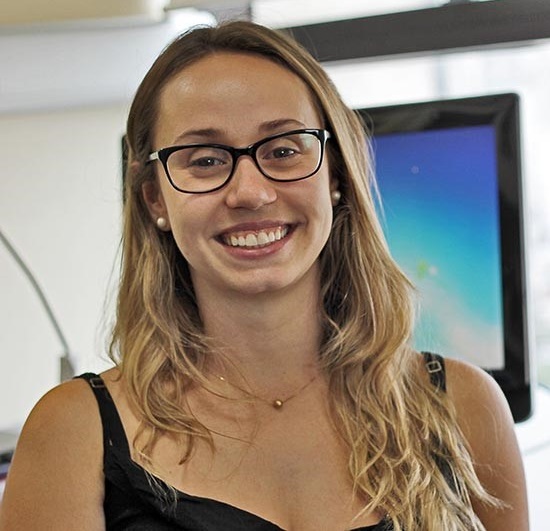
Post-Doctoral Fellow
Feinberg Medical School, Northwestern University
Spaulding Neuromodulation Center, Spaulding Rehabilitation Hospital
Camila Bonin is currently a post-doctoral research fellow at the Physiology department at the Feinberg medical School, Northwestern University. She graduated in Biological Sciences and have a master’s degree and training in cell and systematic biology, including big data analysis. Mrs. Bonin Pinto has a PhD in neuroscience and behavior during which her clinical research was focused in using plasticity modulation techniques to improve motor function after stroke and to relief pain in chronic pain patients. Furthermore, Mrs Bonin Pinto also has a Certificate in Principles and Practice of Clinical Research (Harvard T.H. Chan School of Public Health) and currently she is senior teaching assistant at the same course. Finally, she has extensive experience in clinical trials and collaborated in several projects within neuropsychiatric disorders and neurophysiological changes.
Muhammed Gunduz, MD

Post-doctoral Research Fellow
Neuromodulation Center, Spaulding Rehabilitation Hospital;
Harvard Medical School
Muhammed Gunduz obtained his Medical Degree from Uludag University Faculty of Medicine, Turkey. He is currently post-doctoral research fellow at the Spaulding Neuromodulation Center, Department of Physical Medicine and Rehabilitation. His primary research interest is stroke neurorehabilitation for motor recovery, as well as optimizing the chronic pain management by non-invasive brain stimulation. Finally, he is currently teaching assistant at Harvard T.H. Chan School of Public Health and managing editor of the Principles and Practice of Clinical Research Journal.
Leon Morales-Quezada MD, MSc, PhD, MPH.
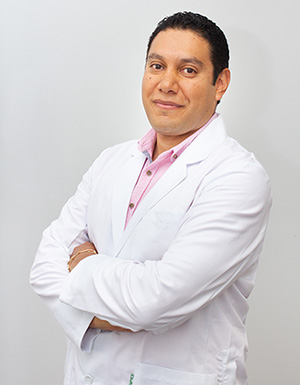
Associate Research Director, Neuromodulation Center, Spaulding Rehabilitation Hospital;
Harvard Medical School
Leon Morales-Quezada is currently Associate Research Director at The Neuromodulation Center, Spaulding Rehabilitation Hospital. Dr. Leon is also a visiting professor for the Facultad de Medicina Universidad de Valladolid in Spain. With a master’s degree from Harvard T.H. Chan School of Public Health and a PhD from De Montfort University, Dr. Leon is specialized in Neurological Rehabilitation, Applied Psychophysiology, Cognitive Neuroscience, his research interest is in neuromodulation, neuroplasticity, and rehabilitation. Dr. Leon have extensive experience working with non-invasive brain stimulation to promote recovery of function in neurological patients and children with disabilities.
Ginger R. Polich, MD
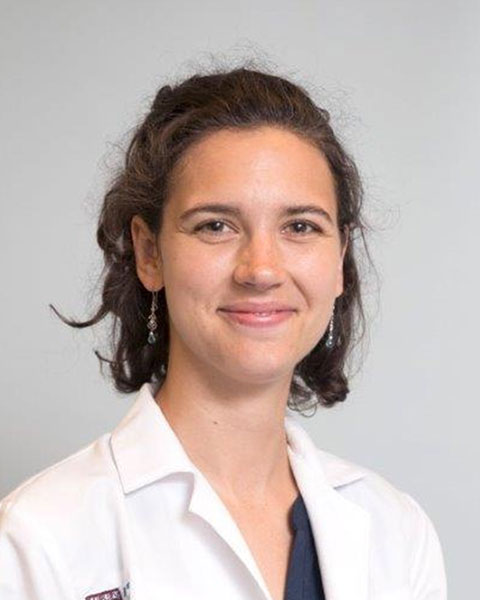
Physician, Spaulding Rehabilitation Hospital
Dr. Ginger Polich works as a clinical physiatrist and researcher at Spaulding Rehabilitation Hospital and Brigham & Women's Hospital. Dr. Polich received a BA in Anthropology from Amherst College, an MD from the University of California, San Francisco where she graduated with honors, and recently completed a PM&R residency and clinical fellowship in Brain Injury Medicine at Spaulding. She is interested in neurorehabilitation, neuropsychiatry, placebo/nocebo effects, and mindfulness. Dr. Ginger is a Physical Medicine and Rehabilitation Specialist. Having more than 6 years of diverse experiences, especially in PHYSICAL MEDICINE AND REHABILITATION, Dr. Ginger R Polich affiliates with Brigham And Women's Hospital and cooperates with other doctors and specialists without joining any medical groups.
Qing Wang, MD,PhD

Assistant Professor, Physical Medicine and Rehabilitation,
Harvard Medical School;
Staff Physiatrist, Spaulding Rehabilitation Hospital
Dr. Qing Mei Wang is a physiatrist who specializes in the care of patients with stroke. She obtained my PhD and MD at the University of Medicine and Dentistry of New Jersey and completed my residency training in Physical Medicine and Rehabilitation at Mount Sinai Medical Center in New York. After completing her residency training, she joined the faculty at Spaulding Rehabilitation Hospital (SRH), Massachusetts General Hospital (MGH), and Harvard Medical School (HMS), where she provide clinical care, supervise trainees, and conduct research on stroke recovery to enhance our knowledge and the quality of patient care.
Marcel Simis, MD
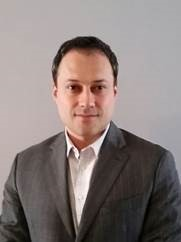
Research Fellow, Harvard Medical School;
Director, Neuromodulation, Institute of Physical Medicine and Rehabilitation,
Hospital da Clinicas, Sao Paulo University (Sao Paulo, Brazil)
Prof. Dr. Marcel Simis is a neurologist and clinical neurophysiologist with a postdoctoral degree from Harvard Medical. He is currently Director of Neuromodulation at the Institute of Physical Medicine and Rehabilitation of HCFMUSP. Its main line of research is the use of neuromodulation in the rehabilitation of neurological patients and study of neuronal plasticity with neurophysiological markers.
Elif Uygur-Kucukseymen, MD
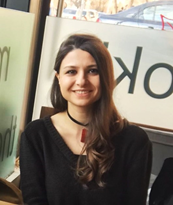
Post-doctoral Research Fellow
Neuromodulation Center, Spaulding Rehabilitation Hospital;
Harvard Medical School
Dr. Uygur-Kucukseymen is currently post-doctoral research fellow at the Spaulding Neuromodulation Center, Harvard Medical School. She has residency training in Neurology at University of Health Sciences, Antalya Education and Research Hospital, Turkey. Besides training as a neurologist, she has educated on Epilepsy-EEG & Neurophysiology. Finally, she has been involved in many clinical trials and collaborated in several projects within neurological disorders and neurophysiological changes.
Wolnei Caumo, MD, PhD
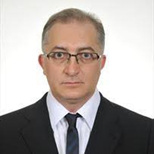
Director, Pain & Neuromodulation Laboratory,
Hospital de Clínicas de Porto Alegre (HCPA);
Professor, Anesthesia and Pain,
Medical School at Universidade Federal do Rio Grande do Sul (UFRGS),
Porto Alegre, Brazil;
Researcher, National Council for Scientific and Technological Development-CNPq
Director of the Pain & Neuromodulation Laboratory at Hospital de Clínicas de Porto Alegre (HCPA), full Professor of Anesthesia and Pain at Medical School at Universidade Federal do Rio Grande do Sul (UFRGS), Porto Alegre, Brazil, and also a distinct researcher team of the National Council for Scientific and Technological Development-CNPq. Dr. Caumo have extensive experience in designing and conducting clinical research trials in the pain field focused on the neuromodulation approaches, having conducted several clinical trials using different methods of neuromodulation. As a result, Dr. Caumo have published over 30 papers in the chronic pain filed. Dr. Caumo expertise in clinical research in the pain field is complemented by his experience as a physician and professor responsible for supervising medical students and residents in their practice in the Pain Center at HCPA, which is a teaching Hospital located in the South of Brazil, the first public hospital to be accredited by the Join Commission in Brazil.
Partners HealthCare System is accredited by the Accreditation council for Continuing Medical Education to provide continuing medical education for physicians.
Partners HealthCare System designates this live activity for a maximum of 26 AMA PRA Category 1 CreditsTM . Physicians should claim only the credit commesurate with the extent of their participation in the activity.
Available Credit
- 26.00 AMA PRA Category 1 Credit™
- 26.00 Participation
Price
In accordance with the Americans with Disabilities Act, our Course Coordinator can assist you with any special needs (i.e., physical, dietary, etc); please contact Paulo Teixeira prior to the live event at PTEIXEIRA@MGHIHP.EDU.
If you are having difficulty registering for the event, please reach out to the Partners Office of Continuing Professional Development at partnerscpd@partners.org
| Full Tuition (residents/fellows, other healthcare professionals & scientists) | $1500 |
Cancellation Policy:
Registrations cancelled on or before July 8, 2019 will be refunded, less a $195 administrative fee. Registrations cancelled after July 8, 2019 will not be refunded.
Contact partnerscpd@partners.org if you require assistance in cancelling your online registration.

 Facebook
Facebook Twitter
Twitter LinkedIn
LinkedIn Forward
Forward